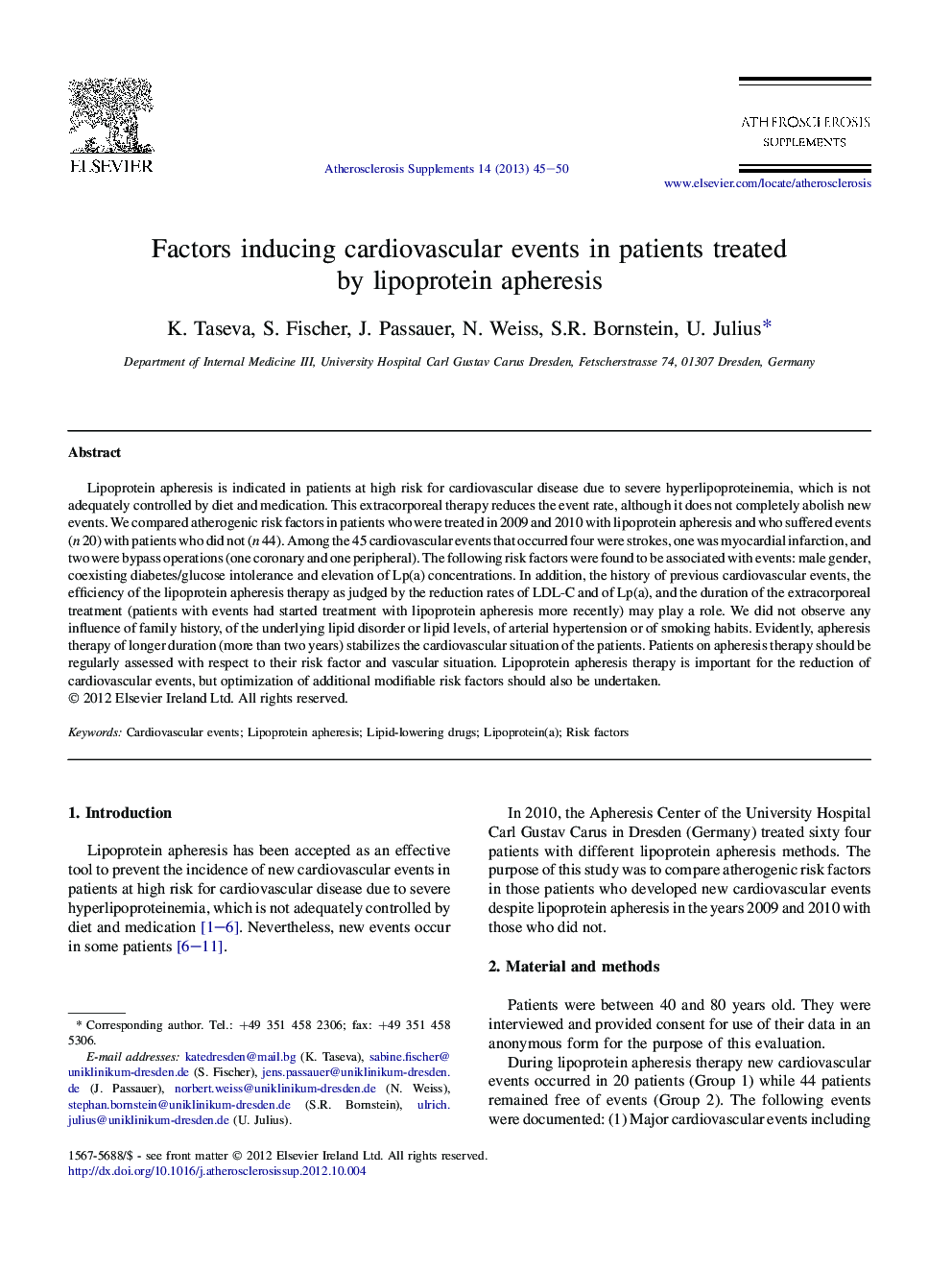| Article ID | Journal | Published Year | Pages | File Type |
|---|---|---|---|---|
| 2895631 | Atherosclerosis Supplements | 2013 | 6 Pages |
Lipoprotein apheresis is indicated in patients at high risk for cardiovascular disease due to severe hyperlipoproteinemia, which is not adequately controlled by diet and medication. This extracorporeal therapy reduces the event rate, although it does not completely abolish new events. We compared atherogenic risk factors in patients who were treated in 2009 and 2010 with lipoprotein apheresis and who suffered events (n 20) with patients who did not (n 44). Among the 45 cardiovascular events that occurred four were strokes, one was myocardial infarction, and two were bypass operations (one coronary and one peripheral). The following risk factors were found to be associated with events: male gender, coexisting diabetes/glucose intolerance and elevation of Lp(a) concentrations. In addition, the history of previous cardiovascular events, the efficiency of the lipoprotein apheresis therapy as judged by the reduction rates of LDL-C and of Lp(a), and the duration of the extracorporeal treatment (patients with events had started treatment with lipoprotein apheresis more recently) may play a role. We did not observe any influence of family history, of the underlying lipid disorder or lipid levels, of arterial hypertension or of smoking habits. Evidently, apheresis therapy of longer duration (more than two years) stabilizes the cardiovascular situation of the patients. Patients on apheresis therapy should be regularly assessed with respect to their risk factor and vascular situation. Lipoprotein apheresis therapy is important for the reduction of cardiovascular events, but optimization of additional modifiable risk factors should also be undertaken.
